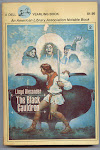We certainly made some good choices of colors and styles of shingles. My house looks new, and the roof matches the brick so well, it looks like they were planned together.
I just finished reading Team of Rivals: The Political Genius of Abraham Lincoln, by Doris Kearns Goodwin. Jed read it first, then loaned it to me. This is one of the best books I've ever read in my whole life. It's also the last book I aim to read about the Civil War. I alternately cried and cursed, silently or aloud, all the way through it. I had already wept my way through John Brown's Body. So I think I've had enough education/enlightenment concerning The War.
One amusing incident that Goodwin put in her book: A prominent Chicago politician got into all kinds of ruin and trouble when he spoke out against the War of 1812. Later, during the Mexican war, someone asked him, "Do you oppose this war?" He said, "No. I opposed one war, and that was enough for me. From now on, I am perpetually in favor of war, pestilence and famine."
I already knew that Abraham Lincoln was the best knight of the world. I was glad to learn, though, that William Seward and Edwin Stanton were also good. I had read a book, many years ago, that presented the assassination of Lincoln as a widespread conspiracy, and hinted that Edwin Stanton, Lincoln's Secretary of War, was at the center of the conspiracy, and that Sec. of State Seward might have been involved. I didn't believe in the conspiracy, but that old book did in my mind cast suspicion on the whole cabinet.
Both Walt Whitman and Louisa May Alcott were nurses for the wounded Union soldiers.
Saturday, July 2, 2011
Pretty roof, good book
Posted by Joanne Cage --
Joanne Cage
at
3:24 PM
![]()
Subscribe to:
Post Comments (Atom)













4 comments:
I never had a very high opinion of Mary Lincoln, but she also helped wounded soldiers, and refused to let her work be reported.
Lincoln's assistants Nicolay and Hay called her "the Hellcat."
Throughout the late 1850s, treaty violations by the United States, and late or unfair annuity payments by Indian agents caused increasing hunger and hardship among the Dakota.On December 26,1862 President Lincoln ordered the hanging of 39 Indians (out of 303 who had been accused of attacking whites in attempts to run white settlers out of Sioux territory.) In his annual message to Congress, President Lincoln wrote: “The State of Minnesota has suffered great injury from this Indian war. A large portion of her territory has been depopulated, and a severe loss has been sustained by the destruction of property. The people of that State manifest much anxiety for the removal of the tribes beyond the limits of the State as a guarantee against future hostilities."
Historian Nichols wrote: “How can Lincoln’s actions in Minnesota be evaluated? In his favor, it is clear that many more men would have been executed without his intervention — probably all 303 condemned prisoners. His humaneness in this must be matched against what he did (or failed to do) following the executions. He made a bargain [that] permitted the removal of tribes from Minnesota, even the innocent Winnebagos. He ordered the permanent incarceration of the pardoned in conditions that led to more deaths than the hangings. His policies left the removed tribes in destitution, partly because of the corruption and mismanagement of officials in the Indian System. Lincoln sanctioned military missions designed to destroy as many Indians as possible in the region, and he acquiesced in sizable land grabs in Minnesota. He installed as secretary of the interior the man who cooperated so closely with Minnesotans in all these matters.”
http://en.wikipedia.org/wiki/Dakota_War_of_1862
Was this account included in the Lincoln biography you just read?
Ramey: No, it wasn't. I won't try to defend that action. Maybe you know exactly what he should have done. I don't.
Post a Comment